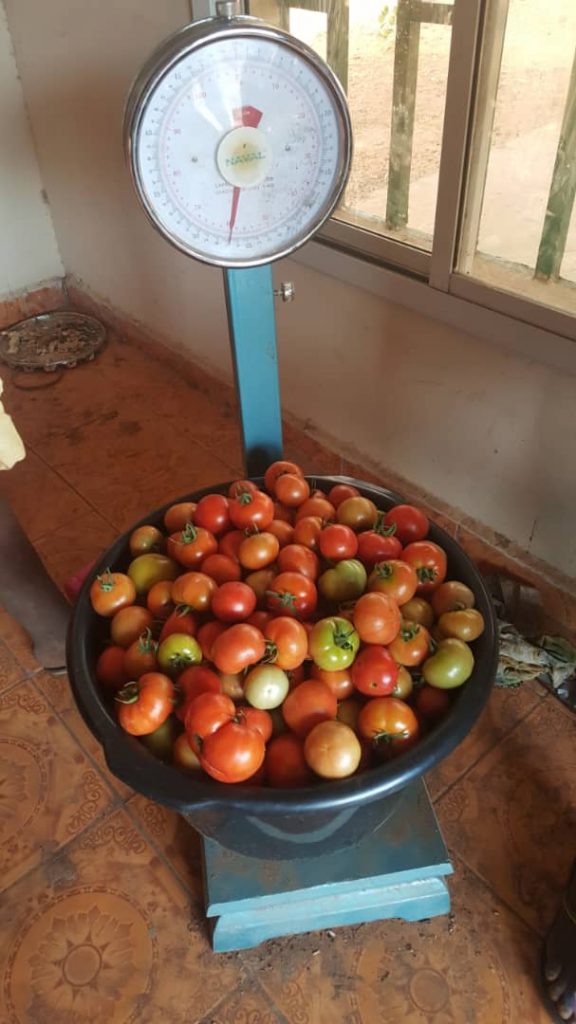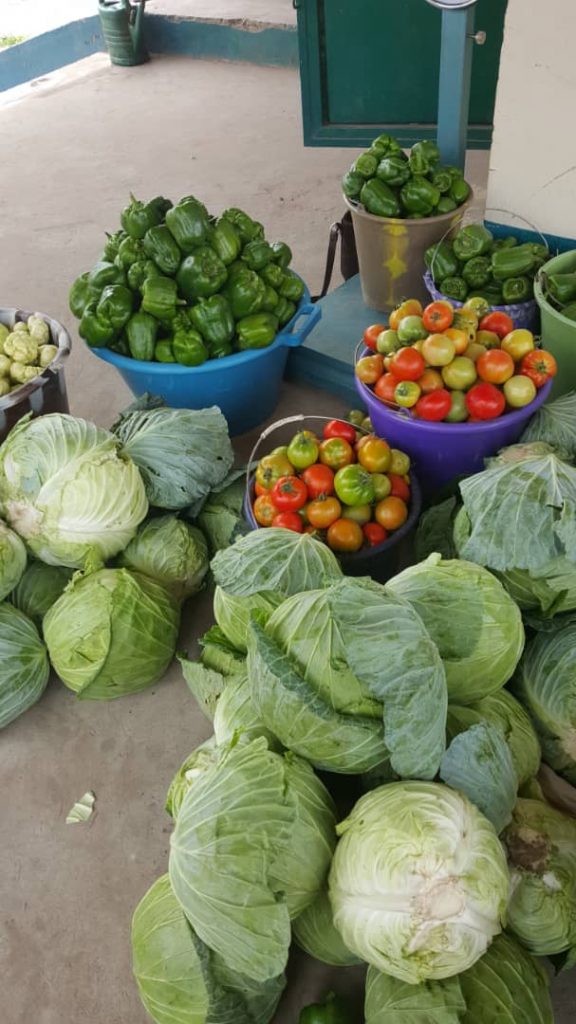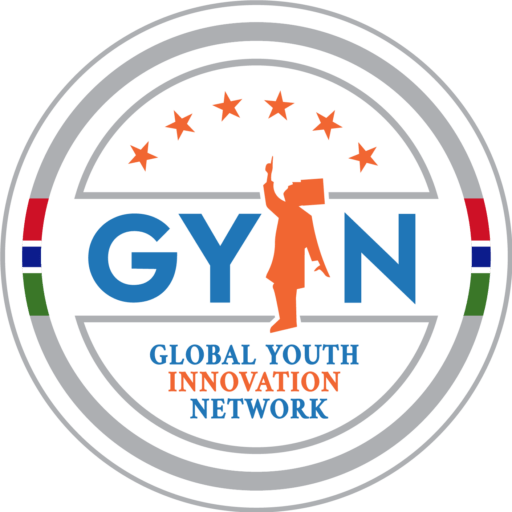
The West Africa Rural Foundation (WARF) and the Global Youth Innovation Network Gambia Chapter (GYIN Gambia Chapter)- www.gyingambia.gm are jointly implementing a two-year (2017- 2019) project dubbed the Agricultural Value Chain Interaction Platforms (AVIP). The AVIP is an enhancement initiative with funding by the National Agricultural Land and Water Management Development Project (Nema). The Nema project is jointly funded the International Fund for Agricultural Development (IFAD)- www.ifad.org- the UN agency specialising in rural development and the Government of The Gambia (GoTG).


The goal of the AVIP is to contribute to the achievement of key Nema outcomes by establishing operational and functional women and youth-based with secured access to profitable local, regional and national markets.
Tthrough the AVIP project, hundred young (men and women) benefiting from Nema intervention will realize increased rice and vegetable productivity and participate effectively and profitably in national and regional markets. Producer organizations, including youth enterprises will have increased access to financial and non-financial services through improved interactions with other actors of selected value chain interaction platforms. The resulting effect will be increased employment and revenues for youths and women benefiting from the intervention.
At the Dasilameh Youth Garden in the West Coast Region (WCR), a youth by the name Ms. Fatou Seckan, 23, – is a producer but have interest in marketing and what she is doing is directly linked to the concept of the AVIP Project. The Dasilameh Youth Garden is funded by the Nema project with an ultimate objective of improving the livelihoods standards of youth in the community. The garden is managed by the youth.
In an interview with Ms. Seckan, she stated that the business is a profitable venture saying that she had a ‘strong’ link with two bulk buyers at Brikama market.
“I used to wake-up as early as 4a.m to go to the garden to buy fresh vegetables and later transport it to Brikama market; where I supply my buyers.”
For his part, Mr. Paul Mendy, Nema/P2RS Assistant Monitoring and Evaluation Officer in his office on Tuesday, 5th March, 2019 as part of celebrations marking the International Women’s Day to showcase the achievements and participation of youth in agriculture.
The theme for this year’s International Women’s Day – IWD “Think equal, build smart and innovate for change”
Mr. Mendy said the AVIP’s concept structured in a way that different actors along the rice and horticulture value chain are represented and encourage to interact openly in terms of production and marketing is about linking demand to supply and what that is doing right now in effect example Dasilameh.
Mr. Mendy adds: “Through the value chain interaction platform, she is able to mobilize all the harvest each day from that garden, mobilize transportation and through the help of the transporter who is represented in the AVIP and moves these products all the way to Brikama market in the West Coast Region where she has already established two major bulk buyers.”
Paul attested that: “This young lady- Seckan, is a youth who is attached to the AVIP and performing the role of a broker and creating that much needed link between bulk buyers at Brikama market and the producers at the garden”.
He stated that the bulk buyers are also women operating in Brikama market and ones these products arrive at the Brikama market everything is taken by two bulk buyers- Mrs. Busu Maria and Juma Camara. The duo bulk buyers will buy her vegetables- tomatoes, green peppers, cabbages, carrots, onions and garden eggs then distribute it to their retailers and the monies collected is paid back to the youth gardener- Ms. Seckan.
“This youth gardener also keeps her profit and that’s what the AVIP is advocating, that is making profit through the value chain- production, transportation and marketing of products”
On the next plan of action for the AVIP, Mr. Paul disclosed that is to engage the youth and see how to replicate this to the other eleven platforms so that the youth provide the programme service and the producers to the bulk buyers.
Mr. Mendy continues that the AVIP will engage Ms. Seckan and to try and find out her challenges and see how to support her establish an agro-enterprise and partner with other youth within the garden.
Access to finance
The Nema project, Mr. Mendy stated has a strategic put in place to attract more youth inclusion into Agriculture saying that the project has a Capital Stimulation Investment Fund (CSIF)- matching grant.
Explain on the CSIF, Mr. Mendy said that since the launching and the operationalization of the project implementation’s in 2012, Nema marching grant stands as 45% project contribution whiles 55% beneficiary contribution.
He went further to say that during the Nema Mid-Term Review in 2018, it has now changed as 60% project contribution whiles 40% beneficiary contributions.
The Nema project, Mr. Mendy outlines is now focusing more on upscaling of the value chain by focusing more on processing and marketing of home grown vegetables, rice and other field crops.
In addition, the project is also looking at Information and Communication Technology (ICT) relating it to marketing agro-products saying that the project will soon enter into an agreement with Farm Fresh- an online platform that sell local products online.
In The Gambia, IFAD loans support agricultural and rural development, while facilitating and promoting access to microfinance. All IFAD projects seek to reduce rural poverty by improving household food security and income, especially of smallholder farmers, women and young people, in accordance with government priorities.
IFAD activities focus on agricultural and rural development and aim to open up on- and off-farm employment opportunities for young people, women and men. IFAD work with traditional kafos (collectively run village groups) to enable IFAD-supported projects to reach out to the most vulnerable households
In The Gambia, IFAD key activities include:
- supporting rice and vegetable value chain development, including strengthening the capacity of farmers, community organisations and their members;
- strengthening access to markets for agricultural products; and
- adding value to rice and vegetable production by strengthening value chain participants, business development, and through a Capital Investment Stimulation Fund.
IFAD financing
Since 1982, IFAD has supported ten (10) projects and programmes in The Gambia for a total cost of US $196 million, of which IFAD contributed US $73.1 million. The support has focused on helping the government strengthen and empower farmers through their organisations and communities, with an emphasis on managing, watershed, promoting access to markets and linkages to value chains, creating rural financial and credit services, livestock development and research, extension and training
